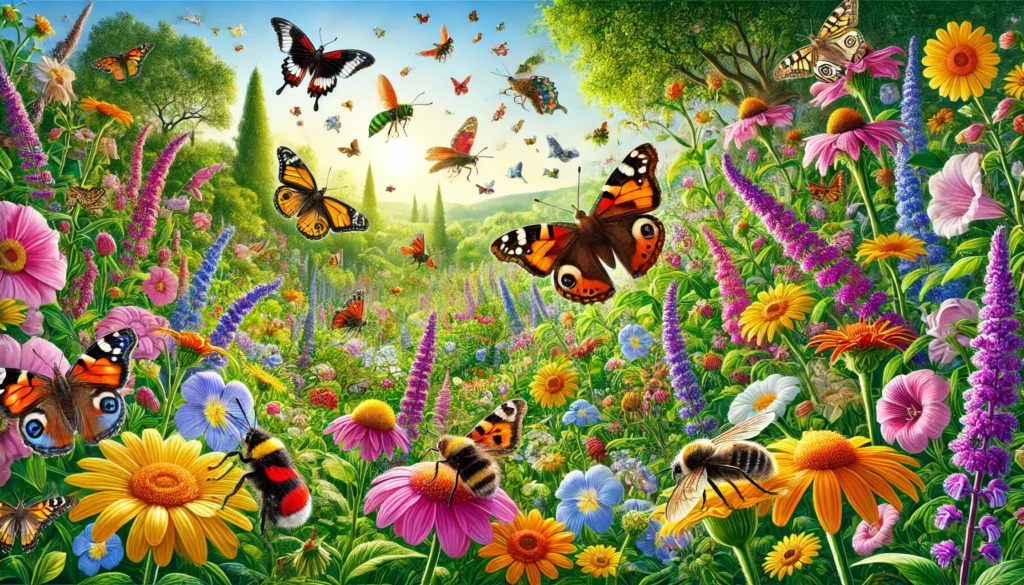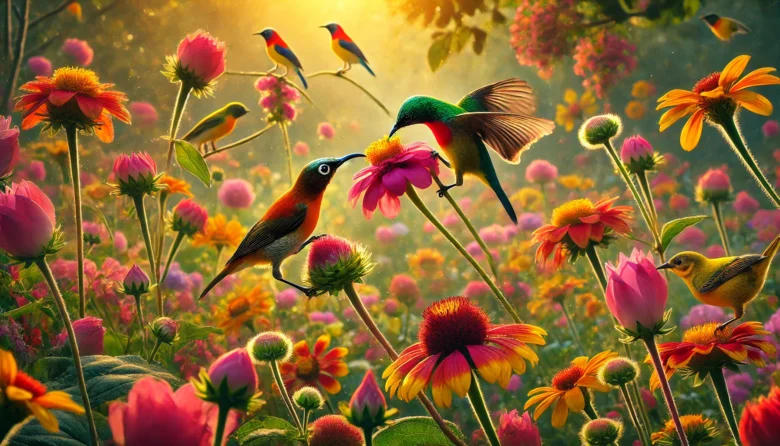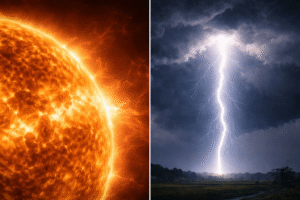When we think of pollination, bees are usually the first creatures that come to mind. But did you know that many other pollinators play a crucial role in our ecosystem? Dive into an intriguing look at the importance of pollinators beyond bees and their critical role, particularly in India.
What is Pollination?
Pollination involves moving pollen from the male part of a flower (anther) to the female part (stigma). This process is essential for the production of fruits, seeds, and new plants. While bees are famous for their pollination prowess, many other insects and animals contribute significantly to this process.
Meet the Lesser-Known Pollinators
Butterflies and Moths
Butterflies and moths are not just beautiful to look at; they are also effective pollinators. They visit flowers to feed on nectar, carrying pollen from one bloom to another in the process. In India, species like the Common Mormon and the Indian Moon Moth are vital pollinators for many plants.
Beetles
Beetles are among the oldest pollinators on earth. Known as “mess and soil” pollinators, they often eat through parts of the flower, picking up and transferring pollen. Some plants, like the magnolia, have evolved to be pollinated primarily by beetles.
Flies
Flies, particularly hoverflies, are important but often overlooked pollinators. They resemble bees and are effective in pollinating a variety of plants, especially those in cooler climates or higher altitudes. In the Himalayas, for instance, flies play a critical role in the pollination of many alpine flowers.
Birds
Birds, especially hummingbirds, are well-known pollinators in many parts of the world. In India, sunbirds and flowerpeckers visit flowers to feed on nectar, inadvertently transferring pollen as they go.
Bats
Bats are essential nocturnal pollinators. They are particularly important in tropical and desert regions. In India, fruit bats help in the pollination of plants like bananas and mangoes.
Ants
Although not as common as other pollinators, ants can also play a role in pollination. They are attracted to nectar and can help in transferring pollen, especially in plants with low-growing flowers.

Why Non-Bee Pollinators Matter
Biodiversity
Non-bee pollinators contribute to biodiversity by supporting a wide variety of plants. This diversity is crucial for the stability and health of ecosystems. Different pollinators often specialize in different plants, ensuring that no single species dominates and that various plants can thrive.
Food Security
In India, agriculture is a significant part of the economy, and many crops rely on pollinators. While bees are essential, other pollinators like butterflies, moths, and birds ensure the pollination of crops such as tomatoes, peppers, and melons, supporting food security.
Resilience to Climate Change
Having a variety of pollinators makes ecosystems more resilient to changes. If one species is affected by disease or climate change, others can fill the gap, ensuring that plants continue to be pollinated.
Challenges Faced by Non-Bee Pollinators
Habitat Loss
Urbanization, deforestation, and agricultural expansion are leading to the loss of habitats for many pollinators. Protecting natural habitats is crucial for their survival.
Pesticides
The use of pesticides in farming can harm pollinators. It is essential to promote the use of eco-friendly pest control methods to safeguard these vital creatures.
Climate Change
Variations in temperature and weather conditions can affect the life cycles of pollinators and the plants they help pollinate. Adapting to these environmental changes and addressing the effects of climate change are crucial for protecting pollinators.
How Can We Help?
Plant Native Flowers
Planting indigenous flowers in gardens, parks, and communal areas can supply food and shelter for native pollinators. Select a mix of plants that bloom throughout different seasons to provide ongoing support.
Reduce Pesticide Use
Implementing organic pest control techniques and minimizing the use of toxic chemicals can help safeguard pollinators. Encourage local farmers to adopt eco-friendly practices.
Create Pollinator-Friendly Spaces
Setting up small water sources, avoiding mowing wildflowers, and leaving some natural areas undisturbed can help pollinators thrive.
Support Conservation Efforts
Participate in or donate to organizations working to protect pollinators and their habitats. Increasing public awareness and advocating for environmental protection policies can significantly impact pollinator conservation.
Conclusion
Pollinators beyond bees play an essential role in maintaining healthy ecosystems and supporting agriculture. By recognizing their importance and taking measures to protect them, we can secure a sustainable future for our environment and ourselves. Let’s celebrate and support all our pollinators, making India a haven for these vital creatures.
Author’s Note:
Thank you for joining me on this journey to discover the incredible world of pollinators beyond bees. I hope this blog has inspired you to appreciate and protect these vital creatures. Together, we can make a difference!
G.C., Ecosociosphere contributor.




